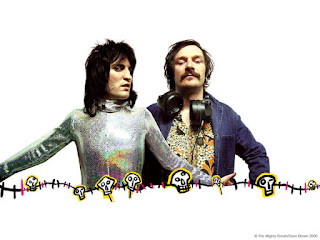Belladonna of Sadness - Quick Thoughts
There is beauty and a semblance of liberation, but there is sadness, so much sadness.
Belladonna of Sadness is a 1973 Japanese animated film that had been previously unreleased in the United States, much like Hausu, another Japanese film from 1977. The main focus is that of the female Jeanne (usually referred to as the title Belladonna) and unfortunate life she leads. Despite marrying Jean, the love of her life, she is promptly raped by the local baron and his subjects. Jean unfortunately is thrown out before he can help her and can only advise her later to forget the ordeal so they can start their lives fresh. She is immediately visited by a spirit who promises to help her and her husband become successful in the local village. When the baron's lady becomes jealous of her popularity, she accuses her of being a witch and has her thrown out of the village. In the wilderness, the spirit from before reveals itself as the Devil, who will grant Jeanne powers for her soul so that she enact revenge and chaos on the village.
Instead of traditional animation, the film usually employs still animations with very few moving that I think helps emphasize the narrative, of which could be considered confusing if not attentive enough. It's also a pretty tough sit, in that the imagery and malice against women in particular can make anyone angry. But this is the point of the film, to show what true misogyny is. In the words of reviewer Count Jackula, "Misogyny is a conscious belief that women are corrupt and evil by nature". This is the sentiment by everyone in the village who comes into contact with Jeanne. Even when she uses her powers to help the villagers with their desires, she's cast out and then burned as an evil being.
All the pain, the ridicule, and the desire for acceptance and a happy married life shattered by the society that believed in a falsehood. There isn't much else I can add, other than this film is a must watch and works as a companion viewing with 2016's The Witch, of which I'm certain had some influence in this film.
Instead of traditional animation, the film usually employs still animations with very few moving that I think helps emphasize the narrative, of which could be considered confusing if not attentive enough. It's also a pretty tough sit, in that the imagery and malice against women in particular can make anyone angry. But this is the point of the film, to show what true misogyny is. In the words of reviewer Count Jackula, "Misogyny is a conscious belief that women are corrupt and evil by nature". This is the sentiment by everyone in the village who comes into contact with Jeanne. Even when she uses her powers to help the villagers with their desires, she's cast out and then burned as an evil being.
All the pain, the ridicule, and the desire for acceptance and a happy married life shattered by the society that believed in a falsehood. There isn't much else I can add, other than this film is a must watch and works as a companion viewing with 2016's The Witch, of which I'm certain had some influence in this film.




Comments
Post a Comment